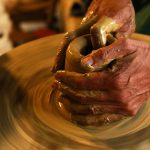Navigating the labyrinthine world of job interviews can be a daunting task, particularly for those in the dynamic field of production engineering. The blend of technical prowess and interpersonal finesse required makes it imperative to approach interviews with both preparation and confidence. Here’s a collection of indispensable tips and strategies designed to help production engineers shine during their interviews.
Understand the Role Thoroughly
Before stepping into the interview room, it’s paramount to grasp the nuances of the position you’re applying for. Production engineering encompasses a plethora of responsibilities, from designing efficient systems to ensuring quality control. Here are three key areas to focus on:
-
Job Specifications: Familiarise yourself with the specific requirements outlined in the job description. What technical skills are paramount? Which software or methodologies are they prioritising?
-
Company Culture: Investigate the company’s ethos. Is it a traditional engineering firm, or does it lean towards innovation and sustainability? Understanding this can shape your responses and questions.
-
Industry Trends: Stay abreast of the latest advancements in production engineering. Whether it’s automation, lean manufacturing, or sustainable practices, showing awareness of current trends can set you apart.
Prepare for Technical Questions
An interview for a production engineer position will inevitably delve into technical territory. Anticipate questions that probe your technical knowledge and problem-solving abilities. Here’s how to prepare:
-
Core Principles: Brush up on fundamental engineering principles. Be ready to explain concepts like Six Sigma or the principles of production planning.
-
Practical Scenarios: Prepare to tackle hypothetical scenarios. How would you improve a production line? What strategies would you employ to reduce waste? Use the STAR method (Situation, Task, Action, Result) to structure your answers.
-
Tools of the Trade: Be conversant with the software and tools common in the field. Whether it’s CAD software or ERP systems, demonstrating familiarity can boost your credibility.
Showcase Soft Skills
While technical knowledge is vital, soft skills are equally essential. Production engineers often work in teams and need to communicate effectively. Consider these aspects:
-
Communication: Be prepared to discuss your approach to collaboration. How do you ensure clarity in your communications with diverse teams?
-
Adaptability: The production landscape is ever-evolving. Share examples of how you’ve adapted to changes in processes or technologies.
-
Leadership: Even if you are not applying for a managerial role, demonstrating leadership qualities can be advantageous. Have you ever led a project or mentored a colleague? Share those experiences.
Ask Insightful Questions
An interview is a two-way street. As much as you are being evaluated, you should also assess whether the company aligns with your career aspirations. Here are some thoughtful questions to consider:
-
Growth Opportunities: What does the company provide in terms of professional development? Are there mentorship programmes or training initiatives?
-
Project Involvement: What types of projects would I be involved in? Understanding your potential contributions can help clarify your fit within the team.
-
Future Directions: How does the company plan to evolve in the coming years, particularly in the face of industry changes? This shows your interest in long-term engagement.
Dress the Part
First impressions are often lasting ones. Choosing the right attire can bolster your confidence and portray professionalism. Opt for business attire that reflects the company culture—smart but not overly formal. Ensure your clothes are clean and well-fitted; attention to detail can make a significant difference.
Follow Up Gracefully
Once the interview concludes, don’t let the momentum fade. A well-crafted follow-up message can reinforce your interest and leave a positive impression. Thank the interviewer for their time, reiterate your enthusiasm for the role, and perhaps touch upon a specific topic discussed during the interview. This brief exchange keeps you on their radar.
As you embark on your journey into the world of production engineering, remember that preparation is key. Equip yourself with knowledge, sharpen your skills, and present your best self. CVPortal continues to bring you an array of quality CV references to support your career aspirations. Embrace the challenge and good luck in your interviews!


